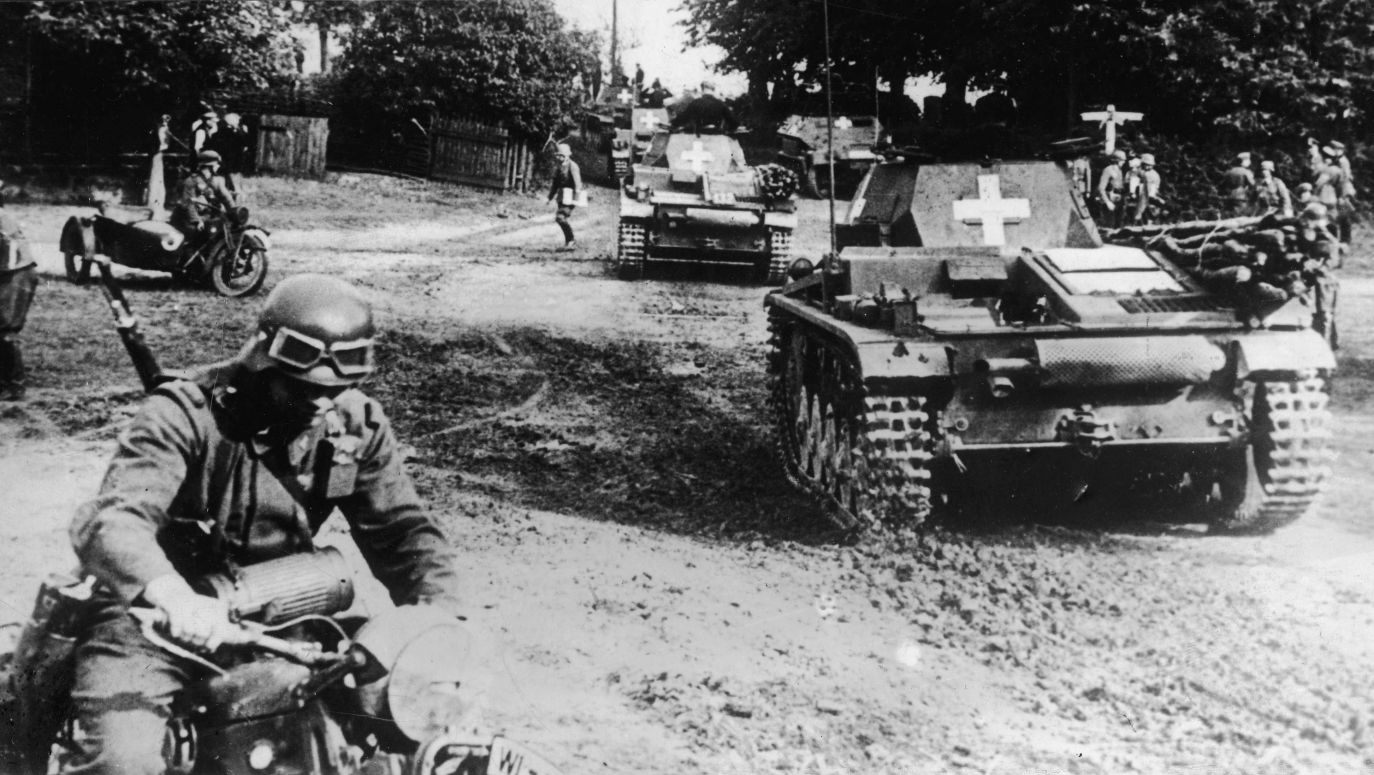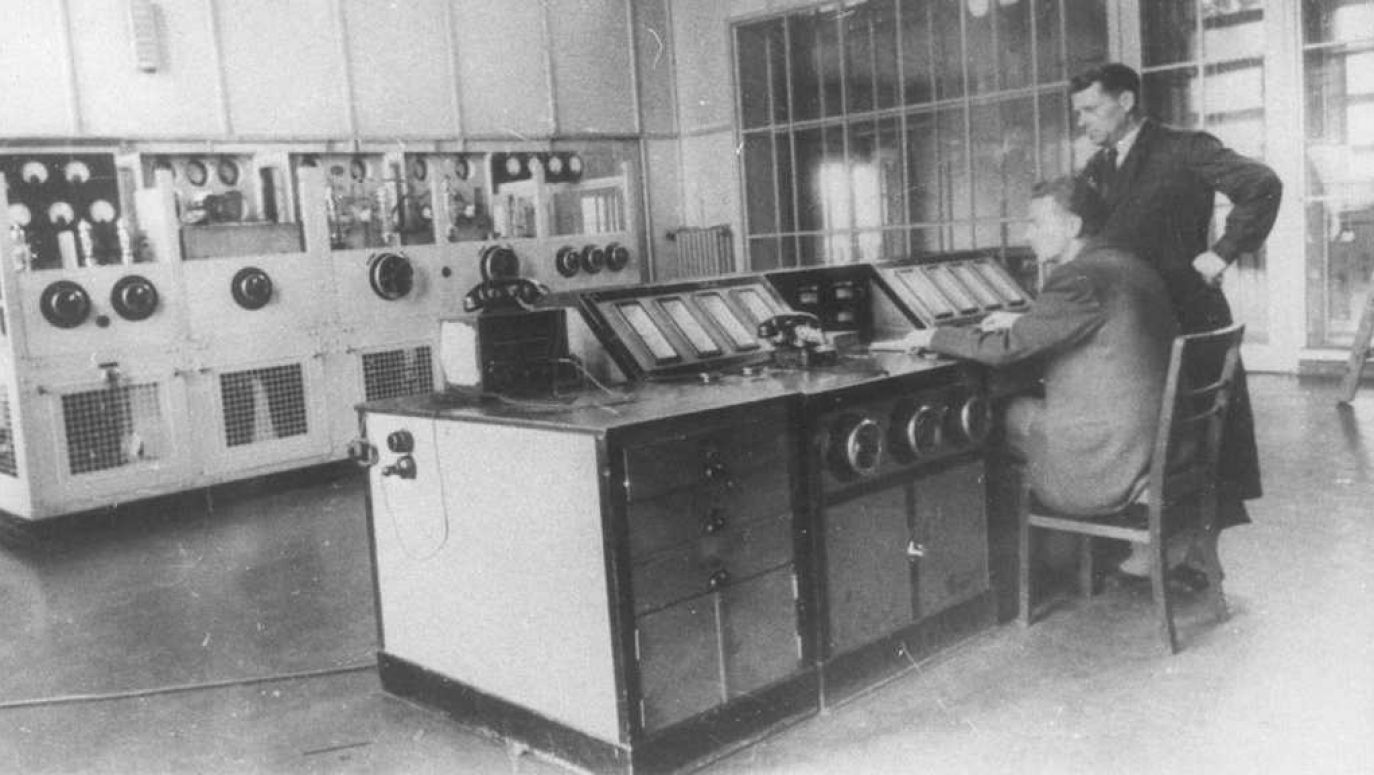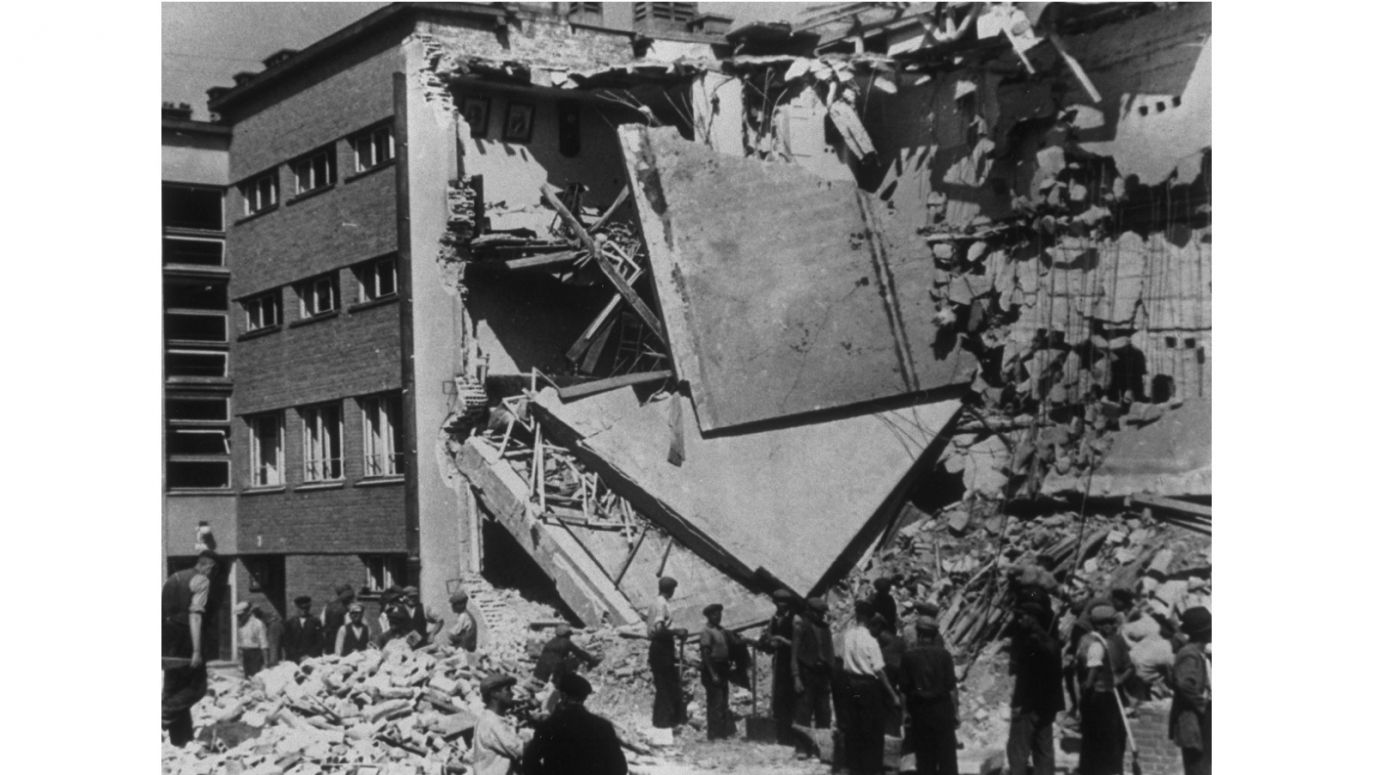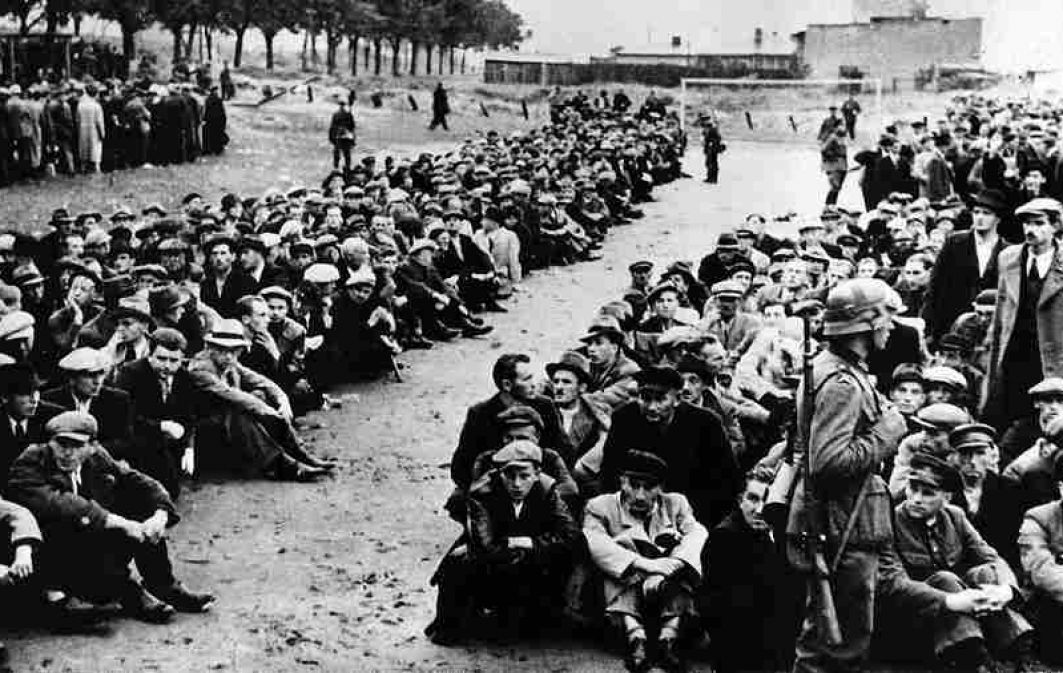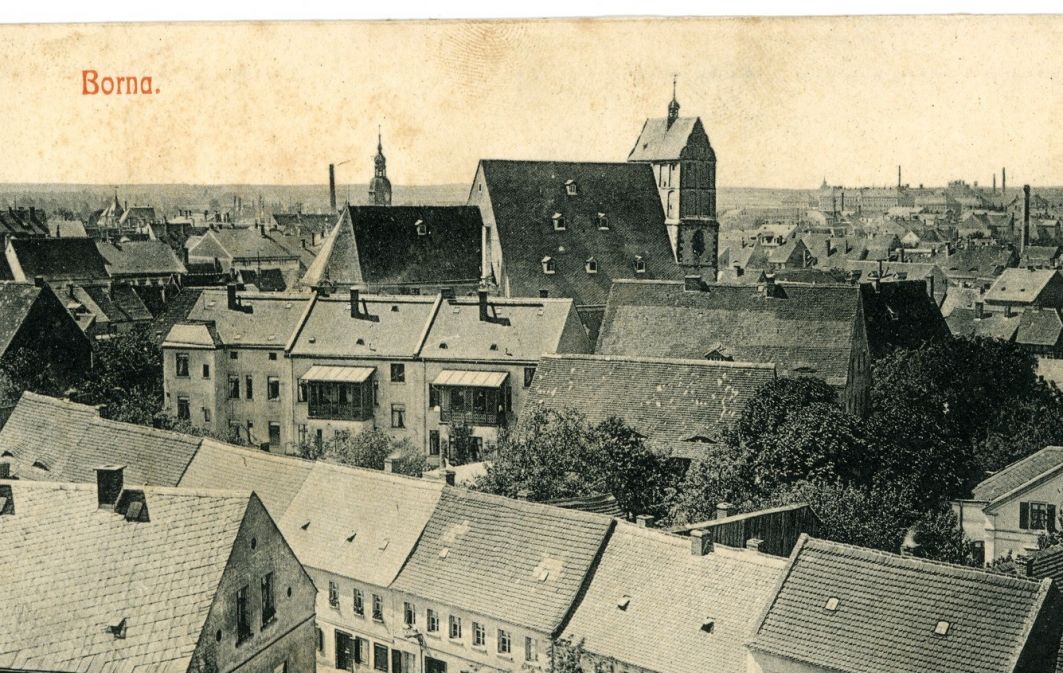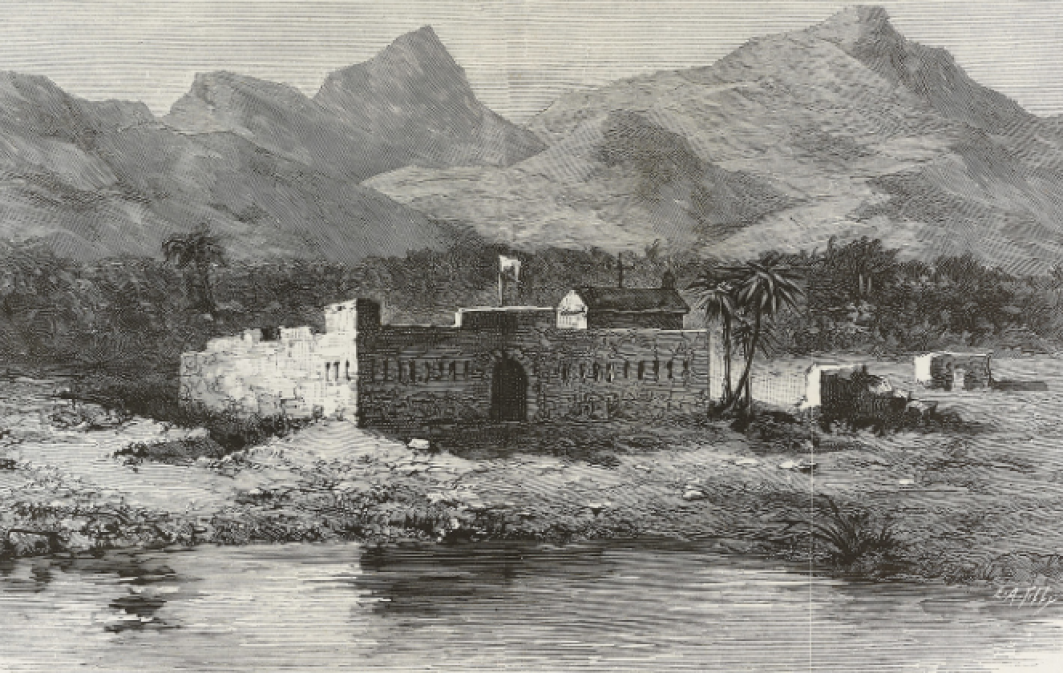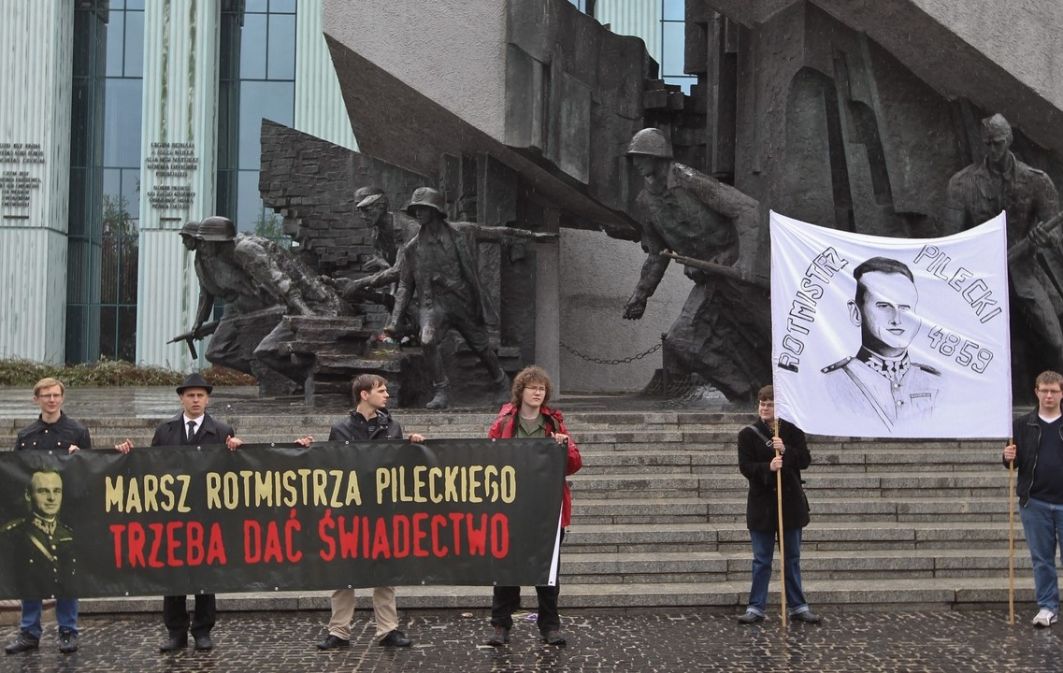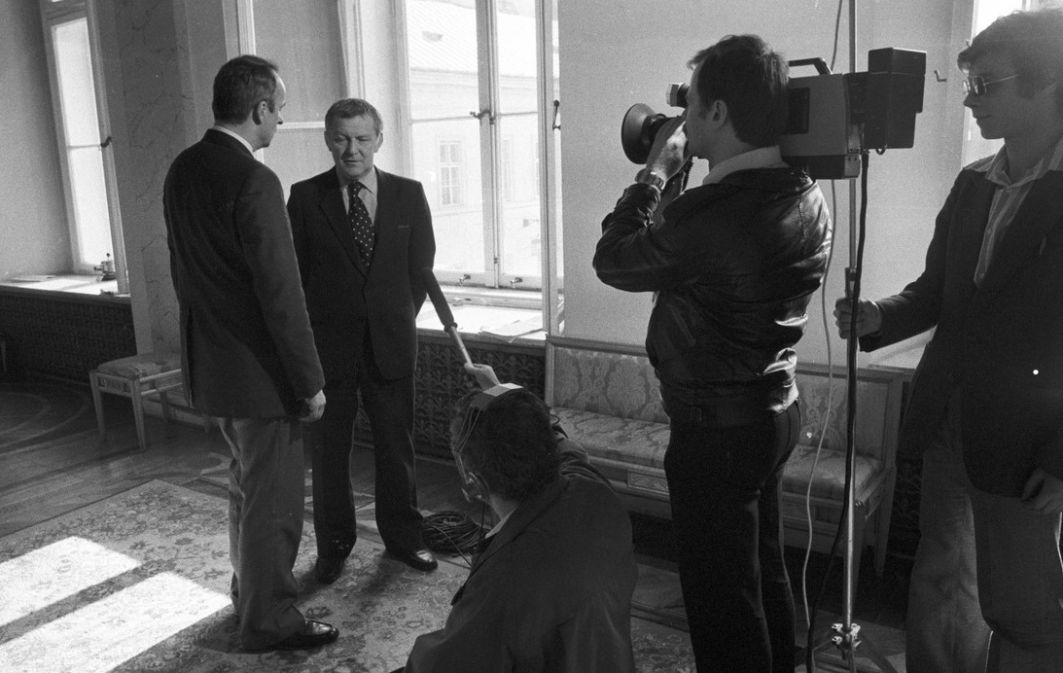The best excuse for war
13.04.2022
The Western countries were provided with an excuse which allowed them to pretend they believed that it was Poland that started the war. They could then limit their military activities to dropping leaflets on the territory of Germany. Hitler for sure acted in his own interest, but at the same time he made a courtesy gesture towards Prime Ministers Édouard Daladier and Neville Chamberlain.
Any country that perceives itself as an empire, must expand - faster, or slower. A justified retaliation to an unprovoked attack, seems to be the most convenient way, and as the long history shows, it is more often designed for internal rather than external use. Making yourself a victim of someone else’s alleged aggression is a very good excuse.
Before the Red Army attacked Finland in the Winter War of 1939, it shelled its own post. The world learned that it was the Finns who first started the attack, and the USSR only reacted - immediately, the day after the incident.
In real provocations organized by rogue states, their own citizens do really die, as it happened in blocks of flats in four Russian cities blown up in 1999 by Russia’s secret services (300 deaths) to justify the second Chechen war. The blocks were supposedly blown up by Chechen terrorists, who had to be chased “even if they hid in a toilet” to quote the words of the newly elected president of the Russian Federation, Vladimir Putin. The Russian army invaded Chechnya.
A highly credible, for the fact of being ancient, lecture on imperialism can be found in the writings of Cassius Dio. The Greek historian wrote about Julius Caesar two centuries after his reign. Caesar was granted by the Senate an empire (the right to conquest) for Gaul, but not for Germania. In Dion’s text it is not stated explicitly, but relata refero : On the accusation made by one of the tribunes that he was rude to the Germanic leader during his visit to the Roman camp, Caesar was to reply that he was hoping to offend him enough to provoke his attack. Caesar told the officers that the Romans had to continue conquering new territories or “otherwise they will take away what we already have.” Following this logic, the legions crossed the Rhine not even waiting for the Germanic tribes to attack.
The aggressor’s tendency to present himself as a victim who has earned his right to fair retaliation is therefore as old as wars themselves, although it gained on popularity after World War I. Due to the costs of the Great War, aggressive states no longer wished to attack other countries openly and “honestly”.
The victor will not be asked
In the German propaganda, the attack of the Third Reich on Poland in 1939 was only a fair response to the attack by the Poles of the German radio station in Gleiwitz, today’s Gliwice. The Gleiwitz incident became widely known due to the efforts of the Nazi press and Hitler himself, although in 1939 no reasonable person would believe in the attack of the “Silesian insurgents” on the radio station or in any other, less blown-up, incidents on the Polish-German border.
Just a few hours after the allegedly Polish, outrageous attack on the Gleiwitz radio station, the Wehrmacht invaded the territory of Poland from the west, north and south. Such an operation can only be done by an army that has been long preparing for a military attack and already waiting in its starting positions. With the pre-World War II compulsory military service, every German man was aware that such an immediate reaction in defence of the honour of his homeland was simply impossible. So were over a million of those in uniforms stationed on the Polish border, as well as every man in other countries, together with their wives and children.
Nevertheless, the Gleiwitz incident was planned and executed in line with the words of Adolf Hitler addressed to the highest commanders of the Wehrmacht on August 22 in Obersalzberg: “I shall give a propagandist excuse for starting the war, no matter whether it is plausible or not. The victor will not be asked afterwards whether he told the truth or not. When starting and waging war it is not right that matters but victory.”
The Germans had planned something that nobody could believe, but Josef Goebbels, who managed the propaganda of the Third Reich, thought that a lie repeated a thousand times becomes the truth. Did it work, especially in Western public opinion?
However, that was not the plan. The lie was meant to provide an alibi to the governments of England and France, which did not intend to fulfil their allied obligations towards Poland, while the perspective of a war at two fronts was terrifying to the Third Reich. The Western countries were provided with an excuse which allowed them to pretend they believed that it was Poland that started the war. They could then limit their military activities to dropping leaflets on the territory of Germany. Hitler for sure acted in his own interest, but at the same time he made a courtesy gesture towards Prime Ministers Édouard Daladier and Neville Chamberlain.
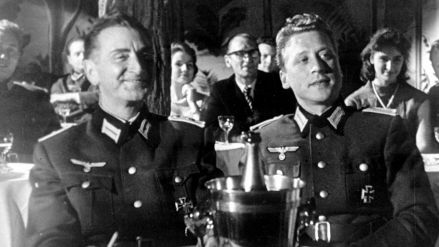
Hundreds of millions of bottles streamed into Germany. Many wineries made fortunes.
see more
General Louis Faury, head of the French military mission in Poland, later recounted his talks with the highest French commanders on August 22, 1939:
“Next, I raise an issue that has troubled me ... If Poland becomes the object of aggression, only the offensive of the French troops will be able to force the Germans to loosen their suffocating embrace. When will this offensive start? Silence. Then General Georges makes it clear that the French army is not capable of launching the offensive and that it is impossible to define when it will be ready for large-scale operation. Until then, only defensive or limited offensive actions may be considered. When I cannot hide my disappointment, General Gamelin simply adds these few words: »Poland must endure.«”
If every lie has short legs, the one about Gleiwitz had stunted legs. The fame of the power of the propaganda related to the provocation in Gleiwitz, which was maintained long after the war, shows the power of the propaganda of the Third Reich. The events in Gleiwitz were definitely a “fake news” and not a “real fact” long before these terms were first coined.
Grandmother died and Gleiwitz remains silent
On August 31, 1939, at 8 p.m., seven SS men wearing civilian clothes, pretending to speak Polish, burst into the building of the radio station in Gleiwitz located about 10 kilometres from the Polish border. They terrorized the staff, locked them in the basement, and then realized that that there was no microphone in the radio room.
The attacked building housed only transmitting devices for retransmission of the program from Breslau to the whole of Silesia, including on the Polish side. Gleiwitz also broadcast local programs and for this purpose there was a microphone studio, and even a concert hall, located in other buildings 4 kilometres away. Both radio stations were connected by wire.
The selected subversive unit took the wrong building. Even operating in their own country, they did not manage to find out where was the studio and where was just the transmitter. Interestingly, Alfred Helmut Naujocks, the SS Sturmbannführer in charge, rather than being later sent by his superior, Reinhardt Heydrich, head of the Reich Security Service, to some useful guard service, continued his career in intelligence.
Thanks to the 111-meter-high antenna tower, the Gleiwitz radio station was clearly audible in Europe, especially in the evenings. It was not only in Berlin, that listeners were to hear a message starting with the words: “This is radio Gliwice. The radio station is in Polish hands ...”
Such a message was heard within the radius of just a few kilometres from Gleiwitz. Naujocks’s men activated the storm microphone, the only one in the transmitter building, which was used to alert local listeners that there will be a transmission break due to the coming storms.
The SS man who spoke the best Polish said something else, but this was not heard even within the radius of the storm microphone. Maybe someone from the radio station staff, freed from the basement to get the only microphone in the building out of the tool cabinet, leaned accidently against a button.
After 30 minutes, the unit of the alleged “Silesian insurgents” or, as some later called them, “Silesian bandits” departed to the hotel. They demolished the interior a bit and took over the “Konserve” from the Gestapo. At the door of the building, they were delivered Franciszek Honiok intoxicated by an injection of the muscle relaxant, whom they shot and left at the scene. Honiok was a real Silesian insurgent and was known locally for his pro-Polish sympathies. His corpse was to make the assault credible - the radio officers defended themselves and shot one of the Polish nationalists, and the rest fled when the police appeared.

Hippie declared that he was after “Lieutenant, the panda and the Yeti – in that order”.
see more
The post-war testimony of the policemen who started the investigation before the Gestapo asked them to leave, shows that that apart from Honiok’s body there were also two other “Konserves”, i.e. corpses in civilian clothes with Polish documents, most likely prisoners of the Sachsenhausen camp, delivered to the site in a state of intoxication after some injection and later shot.
Everything was so well arranged. The relatively numerous security of the building was replaced by two cooperating policemen, the telephone wire had been cut off earlier, and Reinhard Heydrich, after saying the phrase on the phone: “Grandmother died”, waited in vain in Berlin for a message at the radio receiver set to Gleiwitz.
The “real fact”, although it was fabricated, did not happen, no one from Gliwice heard anything – so it was time for “fake news”.
Let’s blow it out of proportions
Two hours later, a German press agency Deutsches Nachrichtenbüro broadcasts a message about an attack on the radio station in Gleiwitz by a Polish volunteer unit composed of Upper Silesian insurgents, who allegedly managed to break into the broadcasting studio, terrorize its employees and broadcast radio messages in Polish and German saying that the city was in Polish hands. Soon the same fate was to be faced by Gdańsk and Wrocław.
Following the German state radio, which this time reached the intended audience, all German newspapers published the announcement, adding a lot of their own, on the morning of September 1. On that day, the Minister of Propaganda, Joseph Goebbels, wrote in his diary: “Polish attack on the broadcasting station in Gleiwitz. Let’s blow it out of proportions. So, we are attacking again. Only in fight does a person feel good”.
On September 1, 1939, the Reich Chancellor, Adolf Hitler, said to the Reichstag deputies: “This night for the first time Polish regular soldiers fired on our territory. Since 5.45 A.M. we have been firing back.” He was wrong by an hour, but he also mentioned “twenty-one frontier incidents during one, only one night”, provoked by Poles at the border, including “three very serious” ones. He means Stodoły, Byczyna and Gliwice. “That’s why I will talk to Poland in the same language that Poland has been using for months now.”
In Stodoły, nowadays a district of Rybnik, Germans wearing Polish uniforms, having orders to shout anti-German slogans in Polish, attacked a German customs post. The plan was to start an immediate counterattack by Grenschutz and to capture Polish soldiers.
Nothing is known about the captured “Polish” prisoners, but after the skirmish, a few bodies in Polish uniforms remained in the vicinity of the post - in the SS jargon, the “Konserve”, that is, prisoners from the Sachsenhausen camp. This information was provided only casually, probably because the action ended after four in the morning, on September 1, 1939.
Similar events took place in Byczyna near Kluczbork, where a lonely forester’s lodge on the German side of the border was attacked. The morning issue of September 1 of the “Völkischer Beobachter”, the central organ of the NSDAP reported: “So far it has been established beyond any doubt that Byczyna near Kluczbork was attacked. Another attack - on Stodoły - is still continuing”.
The insidious attack is still continuing, and the Wehrmacht is - in retaliation – already in Poland. Every citizen of the Third Reich could be proud of such a quick reaction of the state.
Be it for external or internal use, provocations seem pointless and absurd. They were (and still are) believed in by those who wanted to believe. As the case of the provocation in Gliwice shows, the event itself can be an operational failure. What is important is the reaction of the media, or rather its presentation in the media, as this is where everything “really” happens or not. A few hours after the events in Gliwice the war was already in progress and the incident had to be removed from the headlines.
When there is a strong political will, a credible provocation is not even necessary. The long-standing position of the Gleiwitz incident as a symbol of provocation in historiography cannot therefore be rationally explained by what really happened in Gliwice on August 31, 1939 at 8 p.m.
– Krzysztof Zwoliński
– translated by Ewa Sawicka

